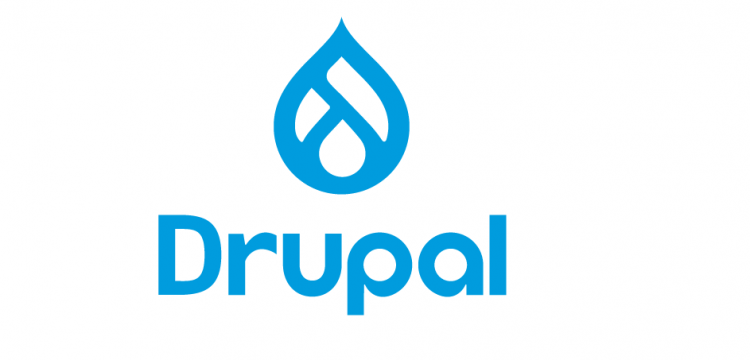Drupal and Tiki Wiki CMS Groupware are two of the most popular and robust content management systems (CMS) currently on the market. Both have their upsides and downsides, but how do they compare when it comes to each other?
This comprehensive article outlines the most important things you need to know about Drupal and Tiki Wiki CMS Groupware before making your decision of which to use in your next web project. If you need more information or would like any questions answered, feel free to contact me by email at [email protected].
Read More: Google vs. Bing – What’s the Difference?
What is Drupal?
To create a more structured and professional look, Drupal has incorporated WYSIWYG editors into its latest versions. Additionally, its ability to quickly add web applications makes it ideal for business sites requiring contact forms, surveys, or other types of integrated functionalities.

While Drupal can be set up by non-developers—like WordPress—it does require a bit more programming knowledge than some of its competitors.
What is Tiki Wiki CMS Groupware?
Both Drupal and Tiki are open-source content management systems (CMS) written in PHP. Both were developed with security, ease of use, and extensibility in mind. While many people consider them to be comparable, each offers significant advantages and disadvantages that need to be understood before making a decision on which system to choose for your needs. To help you make an informed decision, we’ve put together an overview of both systems.

Difference Between Drupal and Tiki Wiki CMS Groupware
Drupal is a free open-source content management system (CMS) written in PHP. It was originally developed by Dries Buytaert at drupalexpress.com. Drupal has been downloaded over 100 million times since its release in 2003.
Tiki wiki is a web application that allows users to create their websites using a WYSIWYG interface. It’s based on MediaWiki software but uses a different set of extensions. It is used primarily for creating wikis, but can also be used for other purposes.
Installing and Configuring: Drupal vs. Tiki Wiki
Once you’ve determined which program is right for your company, installing and configuring your chosen platform should be smooth. The instructions provided with each program will make sure you don’t miss any steps along the way.
Before moving forward, check that all of your files are in order and that there are no errors on your server or your client’s computer. If there are any questions about what to do next, leave yourself a note so you remember to review these details when you’re finished.
Support Options: Drupal vs. Tiki Wiki
While Drupal is a strong choice for professional developers, it doesn’t have nearly as robust an option for support. It’s not nearly as intuitive and user-friendly as Tiki is, which means you may struggle to find enough developers in your local area with adequate experience in building it. And that means you’ll need to hire someone overseas—with all of their attendant cultural challenges and time zone differences.
Read More: Moz vs. Ahrefs – What’s the Difference?
Learning Curve: Drupal vs. Tiki Wiki
One of Tiki Wiki’s strongest selling points is its ease of use. It doesn’t take long to become familiar with Tiki, and a high level of functionality can be reached in just a few minutes. There are, however, more advanced tools that experienced developers will want to explore, so if you have no prior knowledge or experience with Wikis or other web-based development platforms you may be overwhelmed at first.
Supported Platforms: Drupal vs. Tiki Wiki
Where each system thrives. Drupal supports a wide variety of platforms, including desktop (Linux, Windows, and Mac), mobile, tablet, and web-based versions. Conversely, Tiki is designed as a browser-based groupware application that can be accessed via any internet browser on any operating system (desktop or mobile).
The Pricing: Drupal vs. Tiki Wiki
One of Drupal’s biggest selling points is its flexibility, which extends to its pricing. Pricing for Drupal can be negotiated—and businesses that host their sites save significantly over companies that pay a monthly hosting fee.
For example, Acquia charges $15 per month per user for hosting. If you have 10 employees and each needs access to your site, that means you’ll pay $150 per month. But if you have your server and install Drupal yourself, it will cost only $30 per month—less than half as much as Acquia charges!
Pros and Cons: Drupal vs. Tiki Wiki
Drupal is a Content Management System (CMS) that allows you to publish and manage your website. This can be anything from a simple family website to an online store selling products. The system allows you to create pages, as well as upload and display pictures and videos, without having any technical knowledge.
Tiki Wiki CMS Groupware is a group-oriented content management system that helps you to share your resources with people in real-time. Both of these systems are free to open-source software. Both are available for download on their official websites.
Conclusion
Choosing a content management system (CMS) can be a challenging task. If you’re searching for one to fit your specific business needs, it’s important to look at all of your options. Both Drupal and Tiki Wiki CMS offer businesses a wide range of benefits and drawbacks, but when you review them side by side it becomes easier to make an informed decision about which is right for you.